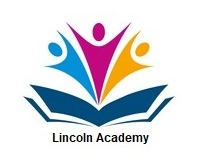Early Childhood
EARLY CHILDHOOD
In our Early Childhood Division (ECD), our primary focus is on creating a secure and welcoming space where we cultivate children’s inherent curiosity and enthusiasm for learning. We achieve this by integrating essential literacy and numeracy skills into engaging subjects that captivate their interests. Our approach involves teaching language abilities such as reading, writing, listening, and speaking through interactive modules centered around social studies and science themes.
• Elementary Handbook
• Pre Kindergarten Curriculum
• Kindergarten Curriculum
• Grade 1 Curriculum
• Grade 2 Curriculum
READING
Our reading instruction is meticulously crafted to enhance both reading and listening comprehension while bolstering each child’s grasp of phonics and decoding techniques. To achieve this, we offer an extensive range of literature resources, including classroom libraries and leveled reading books. Our dedicated teachers engage in personalized guidance, working closely with individuals and small groups to facilitate progress across all proficiency levels. Advanced readers are encouraged to explore more challenging books. Regular assessments are conducted, enabling us to promptly identify students requiring early intervention and English language support, ensuring that every child receives the tailored assistance they need to thrive academically.
WRITING
Our approach to writing centers on effective communication, encouraging students to express and share their ideas meaningfully. Beginning with inventive spelling in kindergarten, students progress to conventional spelling by second grade. They learn to organize thoughts, use vocabulary effectively, create complete sentences, and understand the nuances of writing, all while integrating their writing skills with reading and thematic studies. Writing assessments, including rubrics and teacher-designed evaluations, ensure continuous development and alignment with our standards of compelling writing.
MATH
In our math education approach, students actively engage with tangible tools, allowing them to build their understanding of mathematical concepts. Progressing from hands-on experiences to abstract ideas, they learn traditional algorithms such as addition and subtraction with regrouping. Students memorize fundamental math facts, practice multiplication and division, and explore key areas like numeration and geometry. Encouraged to articulate their mathematical reasoning, concepts are linked to thematic units. Progress is evaluated using assessments created by teachers and the curriculum program, ensuring comprehensive understanding and development.
